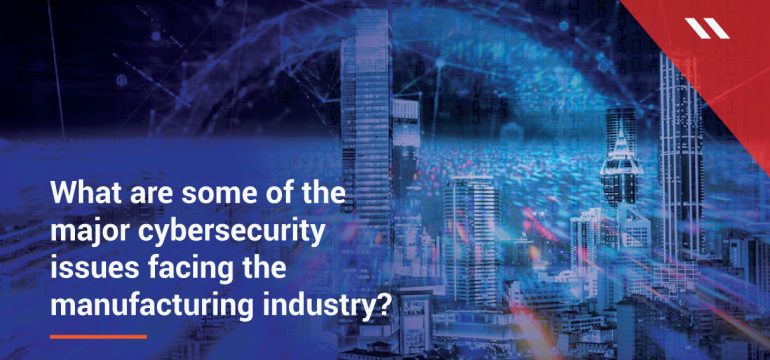Until recently, the manufacturing sector as a whole rarely took cyber threats seriously. This was primarily due to the domain’s outlook that it was a highly specialized industry and hence would not be on the radar of cyberattackers. The outlook started to change after annihilating cyberattacks such as spear-phishing attacks on Saudi Aramco, Stuxnet and the LockerGoga started to surface.
Citing one of the latest cyberattacks, Airbus faced a threat this year when it reported that it had detected an attack on its information systems which resulted in a data breach. Though it did not affect their operations, Airbus did admit that employee-related details had been lost in the breach.
It was events like these when this industry realized that it too is equally prone to cyber threats that can shut down entire production lines and have ramifications throughout the supply chain.
In fact, according to Seqrite’s Q2 Threat Report, cyberattacks are on the prowl in manufacturing, especially in the automobile sector.
We discuss key channels for attackers to target the this industry.
- Data breaches
Manufacturers store a vast range of often specialized and classified data on their systems. This ranges from the projects they are working on, blueprints for future products that companies would like to be secretive about, confidential financial data and a lot more. Hackers are aware that this data is a potential goldmine putting manufacturers at risk of data breaches which can lead to disastrous consequences. Manufacturing companies must recognize that the risk of data breaches actually exists and work hard to plug the gap.
- Internet of Things and connected manufacturing
The manufacturing industry is increasingly moving towards an era of smart manufacturing where the shop floor and the supply chain are progressively getting interconnected. This helps to speed-up production and time-to-market but also creates an ecosystem where there is a reduced division between different stages in the manufacturing lifecycle.
Although beneficial, this increases the risk of a cyberattack in multitudes – the risk of a single cybersecurity breach can have a deep impact on a manufacturing plant.
Furthermore, with futuristic technologies like the Internet of Things (IoT) seeing enterprise adoption at lightning speeds, manufacturers, now, have to deal with an added cyber threat channel.
- IP theft
Intellectual property is the manufacturing industry’s key asset and prized possession. Hence, it is obvious that if it goes in the wrong hands, this could cause immense reputational and financial damage to a manufacturing company. While most companies in this sector have strict rules for employees on the information they can disseminate to external sources, enterprise stakeholders do not consider that the risk for IP theft can also come from cyber attacks, whether it’s data breaches or insider threats.
- Falling behind in the skills gap
Mostly, the manufacturing industry collectively understands the importance of specialized knowledge and hiring people with expert skills to solve the problems they face in day-to-day operations. However, considering the current dangerous scenario of enterprise cyberattacks, this needs to be extended to resolve their cybersecurity problems as well.
After all, cybersecurity is a specialized issue and it requires specific people with the correct training and knowledge to tackle it. The manufacturing industry must look beyond a conventional IT department to tackle cyberthreats.
- Regulation and compliance
The manufacturing industry has mandates to comply with regulations at a national and an international level that currently encapsulates cybersecurity as well. Most manufacturing companies nowadays operate under some sort of regulatory control for their data. Often this information is stored in the cloud with very limited access and under strict regulations.
If this data privacy is violated, it can have serious consequences and is a factor to be kept in mind when considering a cloud network security strategy.
Keeping the above in mind, it is important for the manufacturing sector to prioritize cybersecurity and invest in solutions like Seqrite Endpoint Security (EPS) and Unified Threat Management (UTM) to ensure they remain protected in this day and age of sophisticated and tailor-made cyberattacks towards the enterprise.




